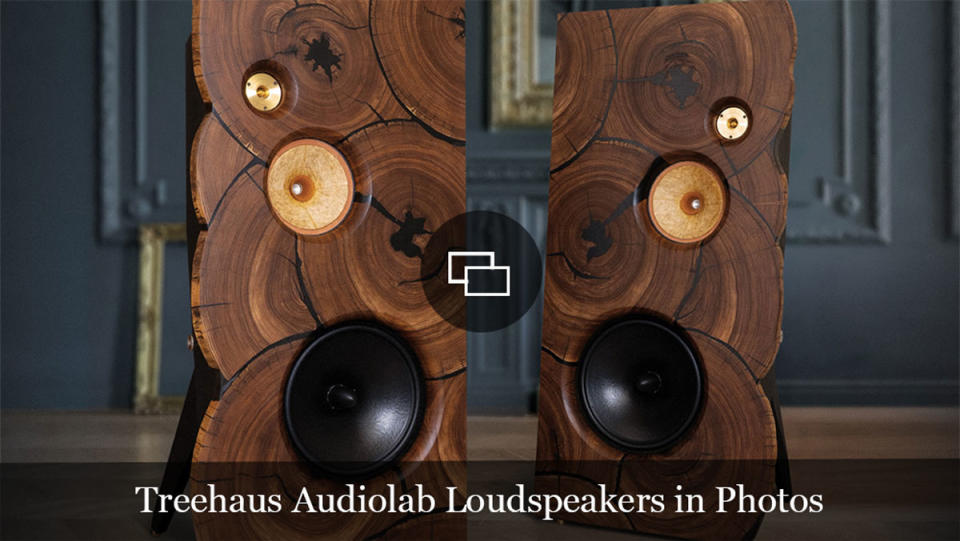These Treehaus Audiolab Speakers Aim for Sound as Natural as Their Look
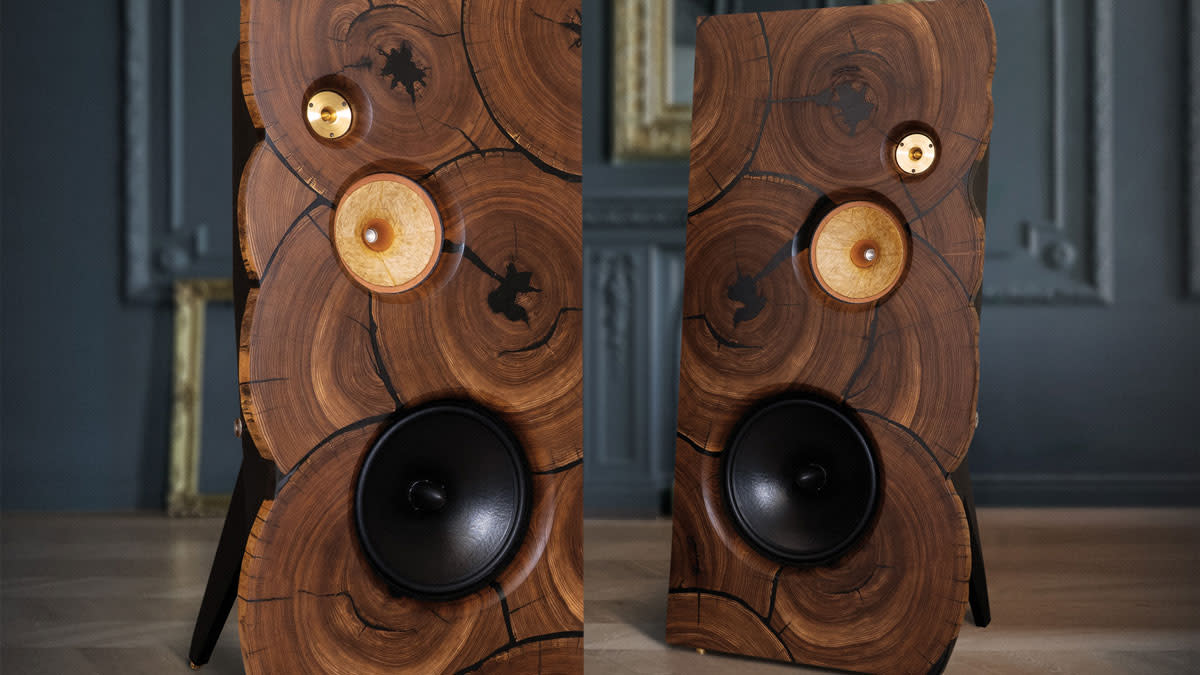
Rich Pinto is an audio iconoclast of sorts, and his company, Treehaus Audiolab, produces perfectionist loudspeakers and vacuum-tube electronics. A design philosophy that emphasizes natural sound is underpinned by the use of pure, natural materials in the construction of the audio atelier’s components, where wood, paper, and metal are employed in a truly artisanal fashion.
Treehaus Audiolab’s loudspeakers are certainly conversation-starters, and that’s before the first needle-drop. (Pinto, like many music lovers and cognoscenti of the world’s top audio equipment, understands that LPs remain the apex predator of the audio food chain, eating digital anything for lunch). These speakers look like nothing else, and aficionados of mid-century design will appreciate the respectful reference to the iconic furniture of George Nakashima, whose creations relied upon thick, elaborately grained wood planks, purposefully adapted to his stylistic aesthetic.
More from Robb Report
Lamborghini and Technics Just Teamed Up on New Turntable and LP
Review: Meze Audio's Newest Headphones Deliver Premium Sound and Plush Comfort
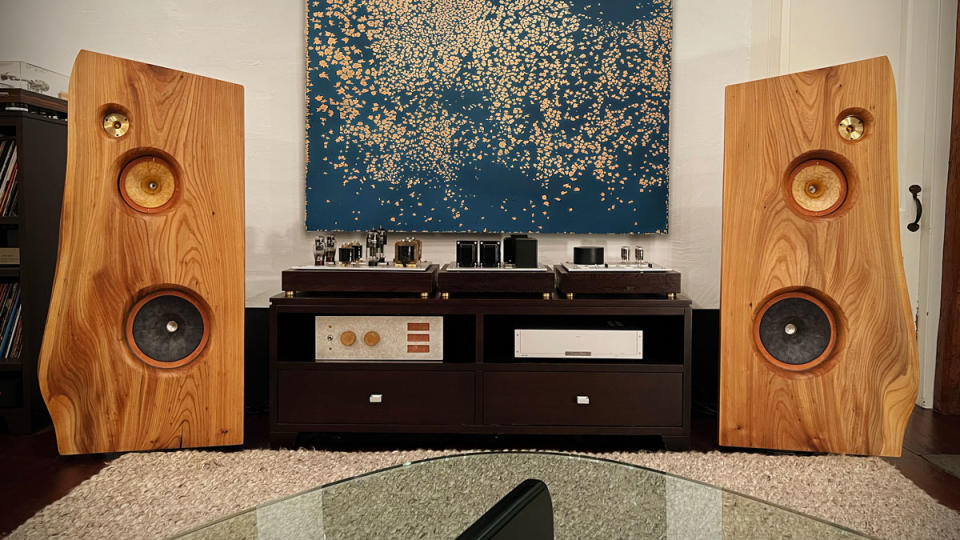
Pinto uses specimen-grade, line-edge walnut or elm hardwood for the speaker baffles. Front baffles of box elder, Baltic birch, or unique, cross-sectioned tree trunks that Pinto refers to as “cookies” are available to order. Hard maple sidewalls and legs support each loudspeaker, which weighs from 90 to 150 pounds. The transparent, effortless sound of Treehaus speakers comes from the use of ultra-high-efficiency field-coil drivers, subtly enhanced by a low-range woofer and a super tweeter.
Say “loudspeaker,” and most people envision a box with a fabric grille, behind which cones of different diameters are responsible for reproducing a particular range of frequencies. And that formula can work just fine. But with problem-solving exercises like speaker design, a different set of compromises accompanies any particular technology.
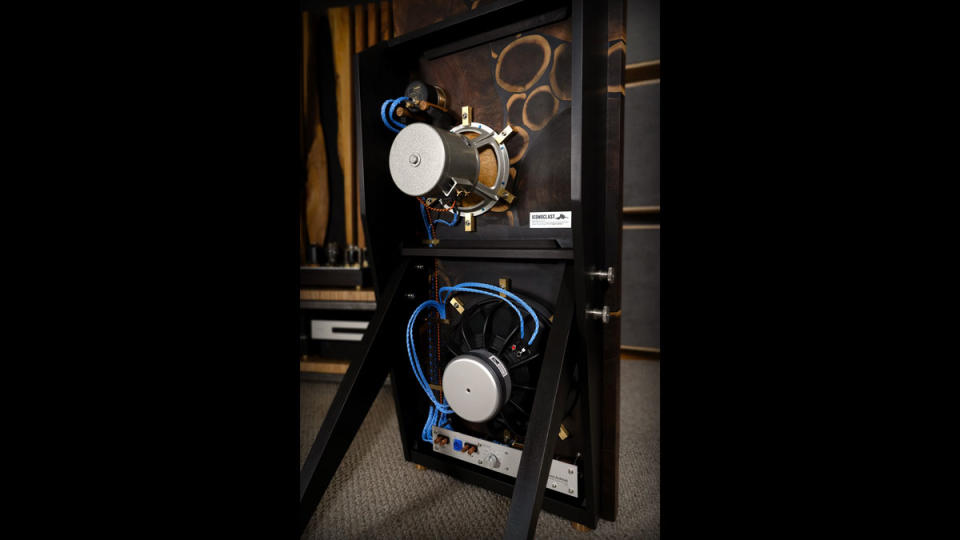
With dynamic drivers imprisoned in a box, achieving a coherent soundstage, achieving time alignment of multiple drivers, and eliminating unwanted cabinet resonances require complex solutions. Such challenges are exacerbated by crossover networks that can wreak all kinds of sonic havoc if not correctly implemented. Characteristic distortions called “box colorations” are hard to shake and are what drive many audiophiles to planar ribbons, AMTs, electrostatics, horns, and every other sound-making contraption invented since Edison’s phonograph, including field-coil drivers that, used by Treehaus, are free from an enclosure of any kind.
In the case of these speakers, the full-range field-coil operates without a crossover network and does the lion’s share of music making, augmented by a 15-inch bass driver to reproduce frequencies below 90 Hz, and a high-frequency Fostex AlNiCo tweeter to make upper-octave conversation.
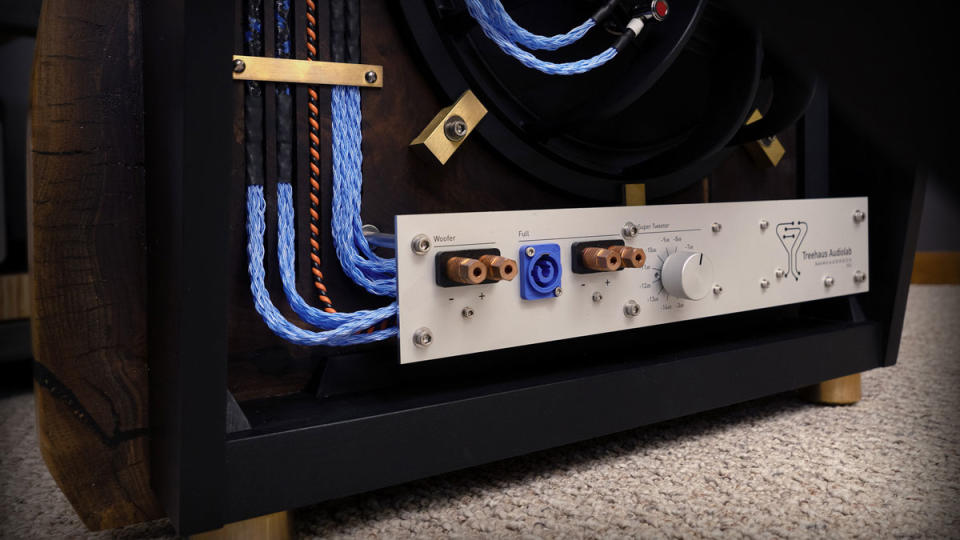
Properly designed, an open-baffle loudspeaker releases all of a transducer’s acoustic energy into the open air, with back waves that are not hindered by an enclosed box. The naturalness can be uncanny. Treehaus Audiolab offers two versions: The Phantom of Luxury, priced from $29,000 per pair, uses the highest-quality drivers, while the National Treasure utilizes a similar driver complement, and is priced from $19,000 per pair.
People who are into speakers know that not all drivers are created equal. Some are almost mythical, such as the full-range field-coil driver made in Bavaria by Atelier Rullit. Using a cache of original German prewar Klangfilm and Telefunken field-coil drivers, Rullit redesigns and essentially “restomods” the transducers using old German copper wire for coils and ultra-lightweight paper for cones. The advantages of a field-coil transducer are its ultra-lightweight voice coil and cone assembly, which eliminate a heavy magnet, driving the assembly instead with a high-voltage, tube-rectified field-coil. These are the drivers that give voice to the Treehaus Audiolab speakers, going from below 100 Hz to above 15 kHz without missing a beat.
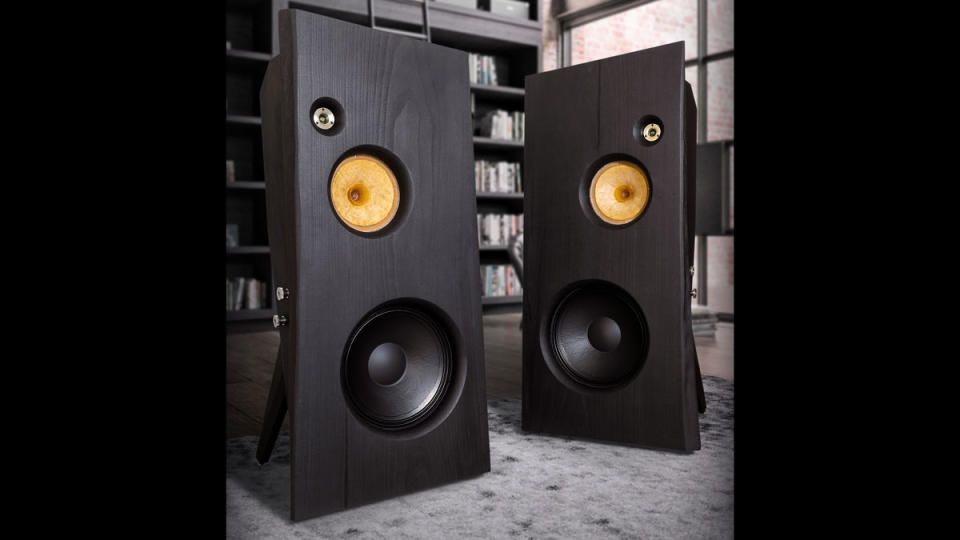
Both the Phantom of Luxury and the National Treasure models are intended to be bi-amped for the sake of the woofer, which is ideally mated to a good Class D solid-state amp, using a DSP module to control the crossover frequency (about 90 Hz) and fine-tune room response. The main field-coil driver and tweeter, which require virtually no muscle at all, are ideally powered by the vacuum-tube amp of choice, such as Treehaus Audiolab’s own 300B amplifier. Heard for the first time, a full-range field-coil loudspeaker can be revelatory—a sonic experience to be savored.
Click here for more photos of Treehaus Audiolab loudspeakers.
Sign up for Robb Report's Newsletter. For the latest news, follow us on Facebook, Twitter, and Instagram.

 Yahoo News
Yahoo News 